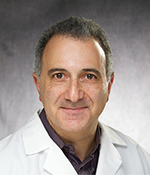
The Political Action Committee of the American Association of Orthopaedic Surgeons (OrthoPAC) is celebrating its 25th anniversary in 2024. Its mission is to support the election and re-election of members of Congress in Washington, D.C., who support effective solutions to issues that affect orthopaedic surgeons’ ability to care for patients.
It is no secret that OrthoPAC needs to be well-funded to achieve its goals. Currently, OrthoPAC is the second most-funded medical specialty political action committee (PAC) in the United States, behind only the PAC of the American Society of Anesthesiologists.
One frequently asked question received from AAOS members who want to donate to OrthoPAC is, “What is the difference between ‘hard’ and ‘soft’ dollars?” Both are essential for the PAC to achieve desired outcomes. And, as a reminder from the OrthoPAC treasurer, OrthoPAC cannot accept contributions from foreign nationals.
Hard dollars
Hard dollars, also known as personal contributions, are from individuals and can be utilized to directly support a political candidate’s campaign. Campaign finance laws limit the individuals from whom OrthoPAC can solicit donations and limit the amount of personal money that individuals can contribute to OrthoPAC. Only hard dollars can be used to support federal election campaign committees.
Individuals may voluntarily contribute up to $5,000 in personal funds annually to OrthoPAC. In turn, the PAC may contribute up to $5,000 per election to a candidate’s campaign. These contributions are, of course, regulated by campaign finance laws. OrthoPAC is also limited to soliciting members of its eligible class, which includes AAOS members, employees, and family members of both. Additionally, OrthoPAC must report the names of individuals who contribute more than $200 per year and disclose all hard-dollar spending as a matter of public record. Hard dollars are a priority for political campaigns because they can be used to directly support a candidate.
Soft dollars
Soft dollars, also known as corporate contributions, cannot be used to support federal election campaigns, per Federal Election Commission (FEC) regulations. As such, corporate contributions made to OrthoPAC are deposited into a separate account and are not subject to regulations. Soft dollars that the OrthoPAC raises are used to support its political operation at AAOS, which is completely self-funded. A PAC donation from an orthopaedic group would be considered a soft-dollar contribution. Soft dollars can be used to cover the PAC’s administrative costs and to support all AAOS advocacy efforts, including the Advisor’s Circle program, voter education, get-out-the-vote efforts, and independent expenditures. OrthoPAC can utilize soft dollars to fund political ads on television or mail for a pro-physician candidate, as long as the efforts are not coordinated with the candidate’s campaign directly.
The Advisor’s Circle, which is part of the OrthoPAC political program, accepts soft-dollar donations from orthopaedic subspecialty groups and orthopaedic private practices around the country. Corporate donations made by members of the OrthoPAC Advisor’s Circle are considered soft dollars; as such, they are not subject to FEC regulations.
In summary, hard dollars from individual donors’ personal funds are highly regulated and can be used (within limits) to directly support a candidate’s campaign. Soft dollars can be used to support the administrative costs of the AAOS political program. Finally, all donations, whether they are hard or soft dollars, are not tax deductible and should come from post-tax dollars. If you would like to know more about AAOS advocacy efforts and the OrthoPAC, visit aaos.org/advocacy/pac.
The Political Action Committee of the American Association of Orthopaedic Surgeons (OrthoPAC) is affiliated with and connected to the 501(c)(6) Association. OrthoPAC is not connected to or affiliated with the American Academy of Orthopaedic Surgeons, which is a 501(c)(3) organization.
Cassim M. Igram, MD, FAAOS, is a clinical professor in the departments of orthopaedic surgery and neurosurgery at the University of Iowa. He is a member of the AAOS Now Editorial Board, treasurer of OrthoPAC, and a member of the AAOS Committee on Professionalism.